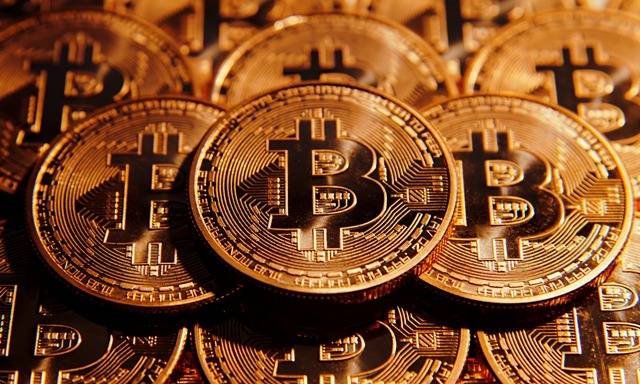Bitcoin’s future as an alternative currency has generated a considerable amount of debate in financial parlors.
A Bitcoin is merely a transfer of value between addresses. Every time you want to transact, an address is created and transfer of value takes place. When you are on the receiving end, a new address is generated by your wallet to receive Bitcoins but when you are sending Bitcoins, they are sent from addresses already in your wallet. These addresses were originally formed when you previously received Bitcoins. Addresses do not hold your Bitcoins - they are merely stored as transactions in a public ledger called Blockchain. So when you want to check your balance, your wallet has to reconstruct the balance by pulling out relevant transactions from the public ledger and aggregating them. That means you cannot point to a physical object, or an organisation, or even a digital file and say it holds your bitcoins.
If you have ever traded in Bitcoins, you need to report any gains to FBR. In order to curb tax evasion, FBR is investigating traders who are suspected of using Bitcoins to evade taxes.
But what makes Bitcoin the single most dreaded commodity and why is it becoming a nightmare for the gatekeepers of our economy? Here’s why. Bitcoin addresses and protocols do not require customer identification. Each address is generated by a wallet which is not associated with a real person. Companies that are in the business of exchanging virtual currency are not as strictly regulated as other financial institutions that are required to document identities. Moreover, transactions can be executed anonymously through proxies or TOR networks that route internet traffic over multiple stations concealing the originating IP addresses. This makes it ever harder for law enforcement agencies to go after tax evaders and money launderers.
Given the characteristics of Bitcoin, it is not hard to see why it is a convenient tool for money launderers. Bitcoin bypasses the banking system making it easier for criminals to move dirty money through the system. To discretely introduce dirty money into legitimate financial system, all the launderer has to do is buy Bitcoins anonymously. He then sets up a legitimate business front that accepts Bitcoins (usually an intangible service) pays anonymously, and voila, you have clean money.
The fact that Bitcoin transactions are usually spread across multiple geographic boundaries only worsens the confusion over what jurisdiction a criminal investigation should fall under. It also makes it hard to determine what laws to apply to a transaction.
In the grand scheme of things, reliance of economic actors on Bitcoin can also weaken central bank’s control over money supply. Bitcoin uses peer to peer technology. New Bitcoins are generated by a decentralized process called mining. At its simplest, mining is the process of adding pending Bitcoin transactions to the public ledger. When miners successfully add transactions, they get rewarded for their service in Bitcoins. Unfettered use of Bitcoin as an alternative to fiat money will mean relinquishing control over money supply. This control however is pretty important for governments. When recession hits, manipulation of money supply can make world of a difference for an ailing economy. Increasing money supply, for instance, can help the economy out of slump. More money sloshing around the economy means greater consumer spending and more economic expansion. Central banks can expand or contract money supply by printing more money, buying services, tweaking interest rates, or making adjustments to fiscal policy. However, lack of control over money supply during a downturn can lead to catastrophic decline in output and rise in unemployment.
The growing value of digital currencies means that other virtual currencies will soon find themselves in the cross-hairs of government.
Should Bitcoin and other virtual currencies be regulated then? Well, it’s more a question of “Can” than “Should”.
Can Bitcoin be regulated?
Well yes and no. No because when you call Bitcoin a currency, you are not comparing like with like. Comparing Bitcoin to a currency is like comparing apples with oranges. Bitcoin is more of a commodity than currency: A digital commodity if you will. It allows people to exchange value without government intervention. It allows users to transact seamlessly across geographic boundaries without having to deal with exchange rates and cuts from middlemen. According to local media reports, State Bank of Pakistan does not recognise crypto-currencies like Bitcoin. Generation of Bitcions is independent of government policy. So while the government may not be able to control its supply or regulate it, it can take indirect measures to influence its usage. For example government can manipulate rules of the existing financial system to hinder participation in Bitcoin transactions. It can issue restrictive licenses driving out major Bitcoin businesses. It can also block access to Blockchain, or worse still, pass laws that make use of bitcoin illegal.
Governments are exploring ways to regulate Bitcoin but there is no clear consensus on how to regulate it. Framing policies in this regard will be an uphill battle for governments.
However, before passing any laws relating to Bitcoin, governments need to understand that clamping down on Bitcoin can come at a cost. It can stall economic progress by preventing local business markets from developing, which will eventually shift technological innovation to other countries.






